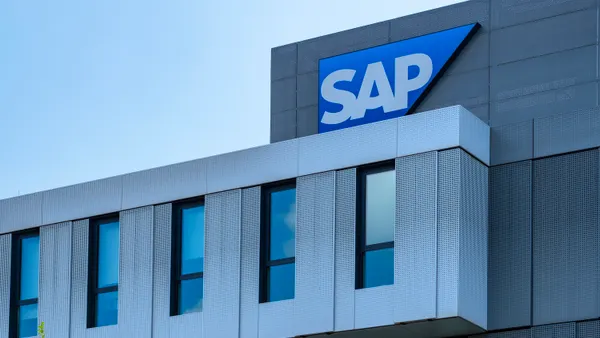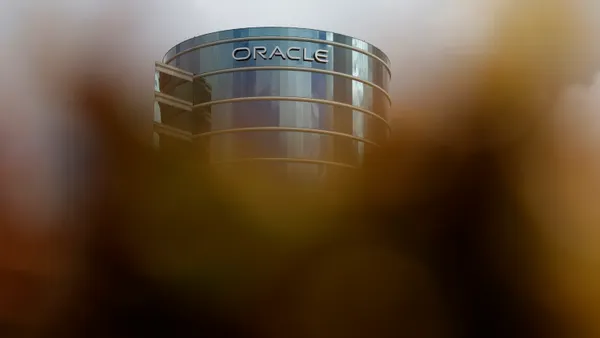Dive Brief:
- AWS told the U.K's Competition and Markets Authority its cloud business “faces competition from on-premises IT” and provided the regulatory agency with examples of customers repatriating workloads, according to a hearing summary published Monday.
- The hyperscaler pointed to the “significant effort” involved in building an on-prem data center as evidence that its customers are open to moving workloads back from the cloud, according to the summary of the July 2 hearing.
- Microsoft also acknowledged that on-prem IT presents competition for cloud in some cases but did not offer specific examples, according to a July 16 CMA hearing summary published Monday.
Dive Insight:
The CMA opened an investigation into competitive practices among AWS and its two main rivals for cloud market share — Microsoft and Google — in October. The agency found potential technical, structural and contractual barriers to moving workloads from and between clouds that could result in vendor lock-in and predatory pricing in a report published earlier this year.
Friction between the three largest hyperscalers intensified as the tech giants tried to assuage regulators and head off further scrutiny during a series of July hearings. Each company had its own points to make — and axes to grind.
AWS noted that cloud comprises just 15% of an IT services market still grounded in on-prem infrastructure, citing analyst data. The company delineated a number of reasons for repatriations, including financial priorities and a desire for companies to increase ownership of IT resources, data and security.
Analysts confirm most enterprises have settled into a hybrid equilibrium, integrating on-prem capabilities with the cloud. Garner expects half of critical enterprise applications to remain outside of public cloud infrastructure through 2027.
But the balance shifted earlier this year as hyperscalers took decisive control of compute capacity, according to Synergy Research Group. Large cloud vendors now control 41% of global data center capacity, overshadowing the 37% that remains on-prem, the market analyst firm found.
Enterprises have several motivations for keeping compute in-house that came out in the hearings.
“AWS said that perceived benefits of on-premises may include closer control of assets and proximity,” according to the transcript.
In the last year, AWS, Microsoft and Google have made concessions to multicloud by removing egress fees enterprises incur when moving workloads from one cloud to another. Microsoft also unbundled Teams from the 365 office productivity suite in April in response to an EU antitrust investigation.
The European Commission nonetheless delivered a preliminary view that Microsoft had “breached EU antitrust rules by tying its communication and collaboration product Teams to its popular productivity applications included in its suites for businesses Office 365 and Microsoft 365,” in a June statement.
AWS and Google seized on software licensing practices to point the finger at Microsoft.
“In AWS’s view, there is a history of cloud providers and customers being unhappy with Microsoft’s conduct,” the CMA said.
Google highlighted Microsoft’s advantage among customers running the company’s enterprise software solutions during its testimony July 19. While touting its success competing for digital natives that don’t have a “preexisting footprint of Microsoft software,” Google said those customers represent a small part of the broad market for cloud.
Microsoft fired back at Google and asserted parity with AWS in the enterprise space.
“Microsoft said that it was able to use its experience of working with enterprise customers for traditional IT in relation to cloud services whereas Google lacked these capabilities and this perhaps resulted in poor execution of services for enterprise customers,” according to the transcript.
“While AWS did not have a history serving enterprise customers when it first entered the cloud services market,” the statement continued, “it nevertheless had strong capabilities in execution for, and support of, enterprise customers.”














